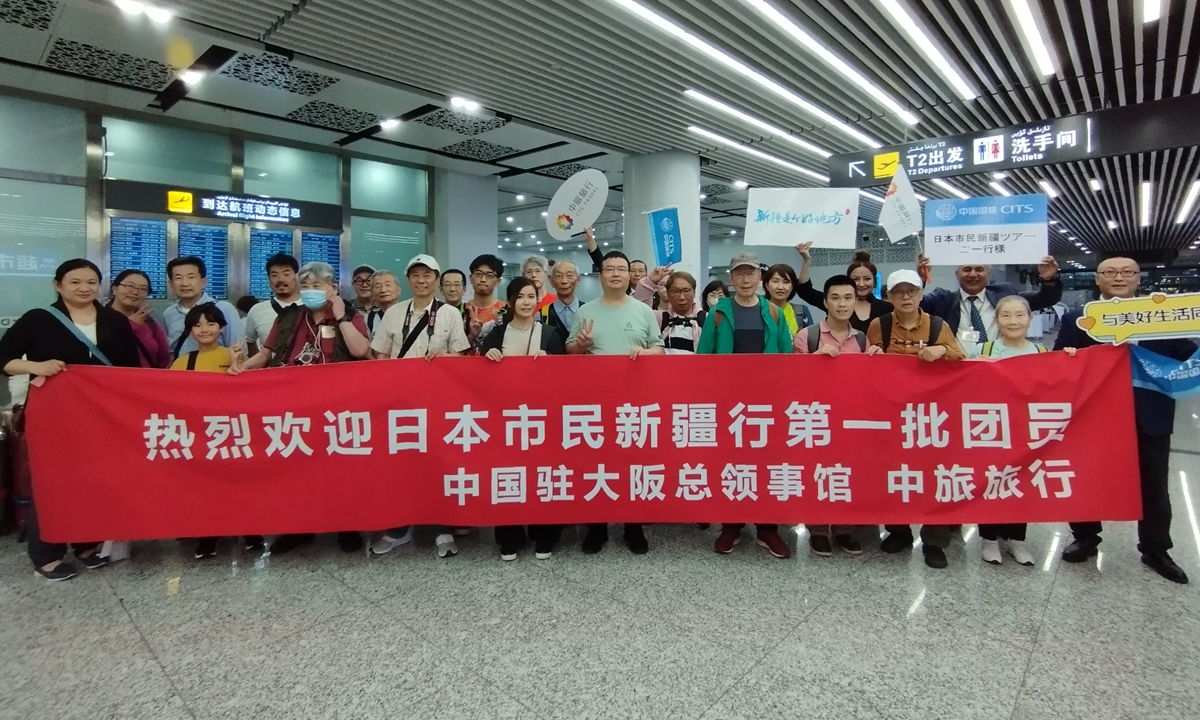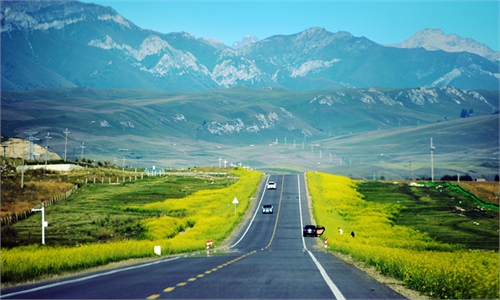
The first group of tourists from Osaka, Japan since China relaxed travel restrictions earlier this year arrived at Urumqi of Northwest China's Xinjiang region on June 19. Photo: Courtesy to the Chinese Consulate-General in Osaka
The first group of tourists from Osaka, Japan, since China relaxed travel restrictions earlier this year, arrived in Urumqi of Northwest China's Xinjiang region on Monday night. They are scheduled to gain a deep and overall understanding of the region's development and local residents' lives in a nine-day trip, which is surely to dispel the disinformation spread by the US and the West.
Due to the epidemic, an activity inviting Japanese people to visit China's Xinjiang region had been delayed for a year, and now the first batch of group will kick off the visit, which will surely let more people know the region and dispel misunderstandings, Chinese Consulate-General in Osaka Xue Jian told the Global Times in an exclusive interview.
The Chinese Consulate-General in Osaka issued a notice on December 2, 2021, inviting people from Japan to travel to Xinjiang region after the end of the COVID-19. The invitation drew widespread attention in Japanese media. In less than a month, 1,028 Japanese tourists applied for the trip.
The first batch of 20 tourists are scheduled to visit five cities in the region - Urumqi, Turpan, Aksu, Korla and Kashi. Aside from scenic spots in these cities, Japanese tourists will also visit an anti-terrorism exhibition in Urumqi, mosques and cotton fields and have interactions with local residents and students.
The Global Times has learned that the trip will cost each visitor about 327,000 yen ($2,308) with travel agencies involved in arrangements and the Chinese Consulate-General in Osaka offering assistance.
Xue told the Global Times that most Japanese people have little knowledge of the previous security situation in the Xinjiang region, especially the frequent terrorist attacks. The anti-terrorism exhibition will help them learn how local residents suffered from "the three evil forces of ethnic separatism, religious extremism and terrorism" and the West's backing of it.
The group of travelers will see the contrast with local residents' stable and happy lives today and gain a more direct and overall knowledge of the local government's efforts in achieving the current situation.
There have been some noises and disinformation on China's Xinjiang region in recent years, including "genocide" allegations, but regardless of the smears, most people in the international community with a conscience are seeking the truth, and a trip to the region is very important and meaningful for them to see the reality and refute the accusations from the West, said Xue.
Xue also noted that the people-to-people exchanges between China and Japan have been greatly affected over the past years due to the COVID-19 pandemic, and with the resumption of the exchanges between the two countries, mutual understanding will be deepened.
Xue said that China's development and Chinese people's happy and stable lives have given them confidence to invite anyone to come and take a look.
"We hope that via this trip, the Xinjiang region will become a window for Japanese to become more interested in China's development and changes and then have a better understanding of China," said Xue, expressing hope that more people from China and Japan will become a firm force to improve bilateral relations.



